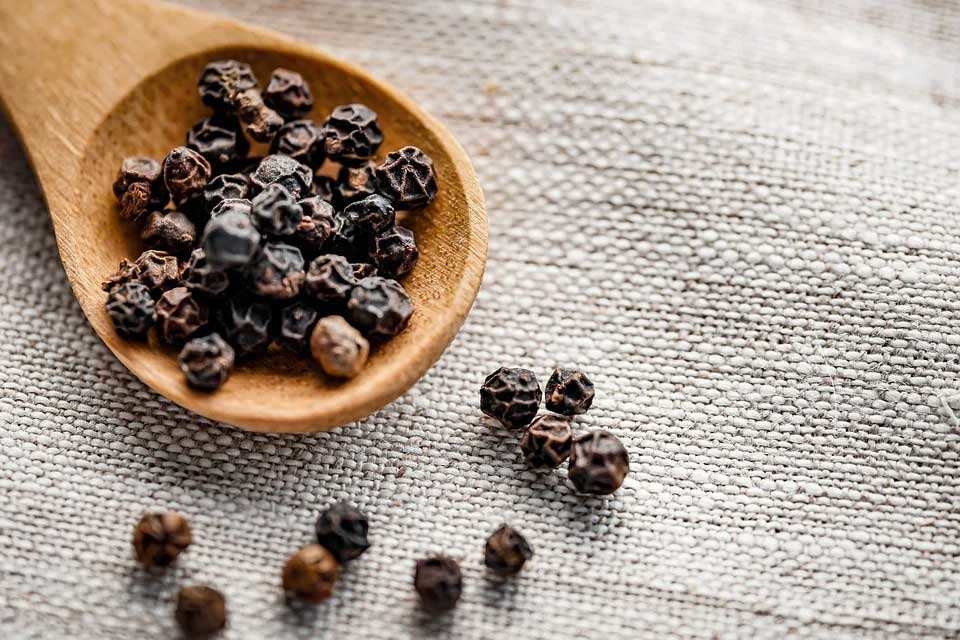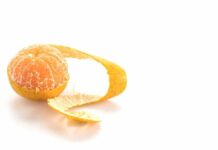
Looking for ways to keep your blood pressure in check? Unlike salt, sprinkling a touch of black pepper on your next meal may do more than enhance its flavor — it may also help lower your blood pressure numbers.
Often called the silent killer because it doesn’t cause any symptoms, high blood pressure is a major risk factor for heart disease and stroke, reports the American Heart Association (AHA). The excess force of blood pushing against your arteries can damage the artery walls, AHA says.
Over time, your arteries can become stiff and narrow, setting the stage for a heart attack or stroke, says Guy L. Mintz, MD, cardiologist at Northwell Health’s Sandra Atlas Bass Heart Hospital at North Shore University Hospital in Manhasset, New York.
While medications are available to get your blood pressure into the safe range, lifestyle changes including a healthy diet and regular exercise are considered first-line treatments.
Black Pepper Benefits
A growing body of evidence suggests that black pepper can be an important part of a blood pressure-lowering diet. The active substance found in black pepper, piperine, may have similar effects to common blood pressure-lowering medications, says Dr. Mintz. “In animal models, black pepper increases the production of nitric acid, which opens blood vessels.”
Black pepper may also inhibit the angiotensin-converting enzyme (ACE), the same enzyme targeted by high blood pressure drugs known as ACE inhibitors, Dr. Mintz says. ACE inhibitors stop your body from producing angiotensin II, which is known to constrict blood vessels, the AHA states.
“It also may have a similar mechanism to calcium channel blockers,” Dr. Mintz says. These drugs lower blood pressure by preventing calcium from entering the cells of your heart and arteries, where it can cause them to contract more strongly. Blocking calcium encourages blood vessels to relax and remain open, the AHA notes.
Exactly how much black pepper is needed to lower blood pressure is not known, but choosing the pepper grinder or shaker over the salt shaker is a good place to start. The AHA suggests a daily salt limit of 2,300 mg. “Cutting back by 1,000 mg a day can improve blood pressure and heart health, and one way to do this is to get rid of your salt shaker,” Dr. Mintz says, adding that most salt in the diet does come from processed foods.
Still, there are more ways to get ahead of high blood pressure.
Know Your Numbers
Nearly half of American adults have high blood pressure, and many don’t know it, the AHA points out. Systolic blood pressure is the upper number in a blood pressure measurement and refers to the pressure when the heart beats while pumping blood. Diastolic blood pressure, the lower number, is the pressure when the heart is at rest between beats.
A blood pressure reading under 120/80 millimeters of mercury is considered normal. If either number is higher, it’s cause for concern … and action.
Eat a Healthy Diet
Many people have success with the heart-healthy Dietary Approaches to Stop Hypertension (DASH) eating plan to lower blood pressure, according to the National Heart, Lung and Blood Institute. This low-fat, low-salt diet focuses on:
- Vegetables.
- Fruits.
- Whole grains.
- Lean protein.
The Mediterranean diet, rich in fresh fruits, vegetables, whole grains, lean proteins and healthy fats like olive oil, can also be beneficial for blood pressure and overall heart health, Dr. Mintz says.
Get Regular Exercise
Regular physical activity is an important part of the equation, too. “Any time you attack blood pressure, you want to attack it with diet and exercise and no added salt, and get stricter from there,” Dr. Mintz says. Aim for at least 150 minutes per week of moderate-intensity physical activity such as brisk walking, the AHA states.
Dr. Mintz cautions that some people will still need medications to lower their blood pressure. These may be started sooner or later based on:
- How high your blood pressure is.
- How long you have tried making lifestyle changes.
- The presence of any other risk factors for heart disease.
“If you have risk factors such as a prior heart attack, high cholesterol or a family history of heart disease, we will go to medication sooner than later,” Dr. Mintz says.
References:
- Guy L. Mintz, MD, cardiologist, director, Cardiovascular Health & Lipidology of Cardiology, Northwell Health, Sandra Atlas Bass Heart Hospital, Manhasset, New York
- American Heart Association: “Types of Blood Pressure Medications”
- American Heart Association: “Shaking the Salt Habit to Lower High Blood Pressure”
- American Heart Association: “Getting Active to Control High Blood Pressure”
- American Heart Association: “The Facts About High Blood Pressure”
- National Heart, Lung, and Blood Institute: “DASH Eating Plan”
- American Heart Association: “What Is High Blood Pressure?”
Important Notice: This article was originally published at www.livestrong.com by Denise Mann, MS where all credits are due. Medically reviewed by Sally Chao, MD, FACEP
Disclaimer
The watching, interacting, and participation of any kind with anything on this page does not constitute or initiate a doctor-patient relationship with Dr. Farrah®. None of the statements here have been evaluated by the Food and Drug Administration (FDA). The products of Dr. Farrah® are not intended to diagnose, treat, cure, or prevent any disease. The information being provided should only be considered for education and entertainment purposes only. If you feel that anything you see or hear may be of value to you on this page or on any other medium of any kind associated with, showing, or quoting anything relating to Dr. Farrah® in any way at any time, you are encouraged to and agree to consult with a licensed healthcare professional in your area to discuss it. If you feel that you’re having a healthcare emergency, seek medical attention immediately. The views expressed here are simply either the views and opinions of Dr. Farrah® or others appearing and are protected under the first amendment.
Dr. Farrah® is a highly experienced Licensed Medical Doctor certified in evidence-based clinical nutrition, not some enthusiast, formulator, or medium promoting the wild and unrestrained use of nutrition products for health issues without clinical experience and scientific evidence of therapeutic benefit. Dr. Farrah® has personally and keenly studied everything she recommends, and more importantly, she’s closely observed the reactions and results in a clinical setting countless times over the course of her career involving the treatment of over 150,000 patients.
Dr. Farrah® promotes evidence-based natural approaches to health, which means integrating her individual scientific and clinical expertise with the best available external clinical evidence from systematic research. By individual clinical expertise, I refer to the proficiency and judgment that individual clinicians acquire through clinical experience and clinical practice.
Dr. Farrah® does not make any representation or warranties with respect to the accuracy, applicability, fitness, or completeness of any multimedia content provided. Dr. Farrah® does not warrant the performance, effectiveness, or applicability of any sites listed, linked, or referenced to, in, or by any multimedia content.
To be clear, the multimedia content is not intended to be a substitute for professional medical advice, diagnosis, or treatment. Always seek the advice of your physician or other qualified health providers with any questions you may have regarding a medical condition. Never disregard professional medical advice or delay in seeking it because of something you have read or seen in any website, video, image, or media of any kind. Dr. Farrah® hereby disclaims any and all liability to any party for any direct, indirect, implied, punitive, special, incidental, or other consequential damages arising directly or indirectly from any use of the content, which is provided as is, and without warranties.








